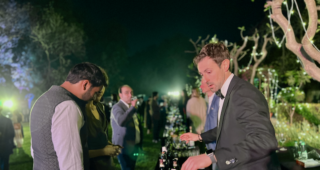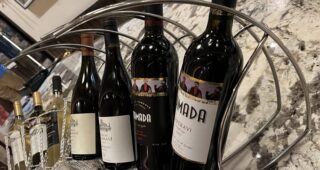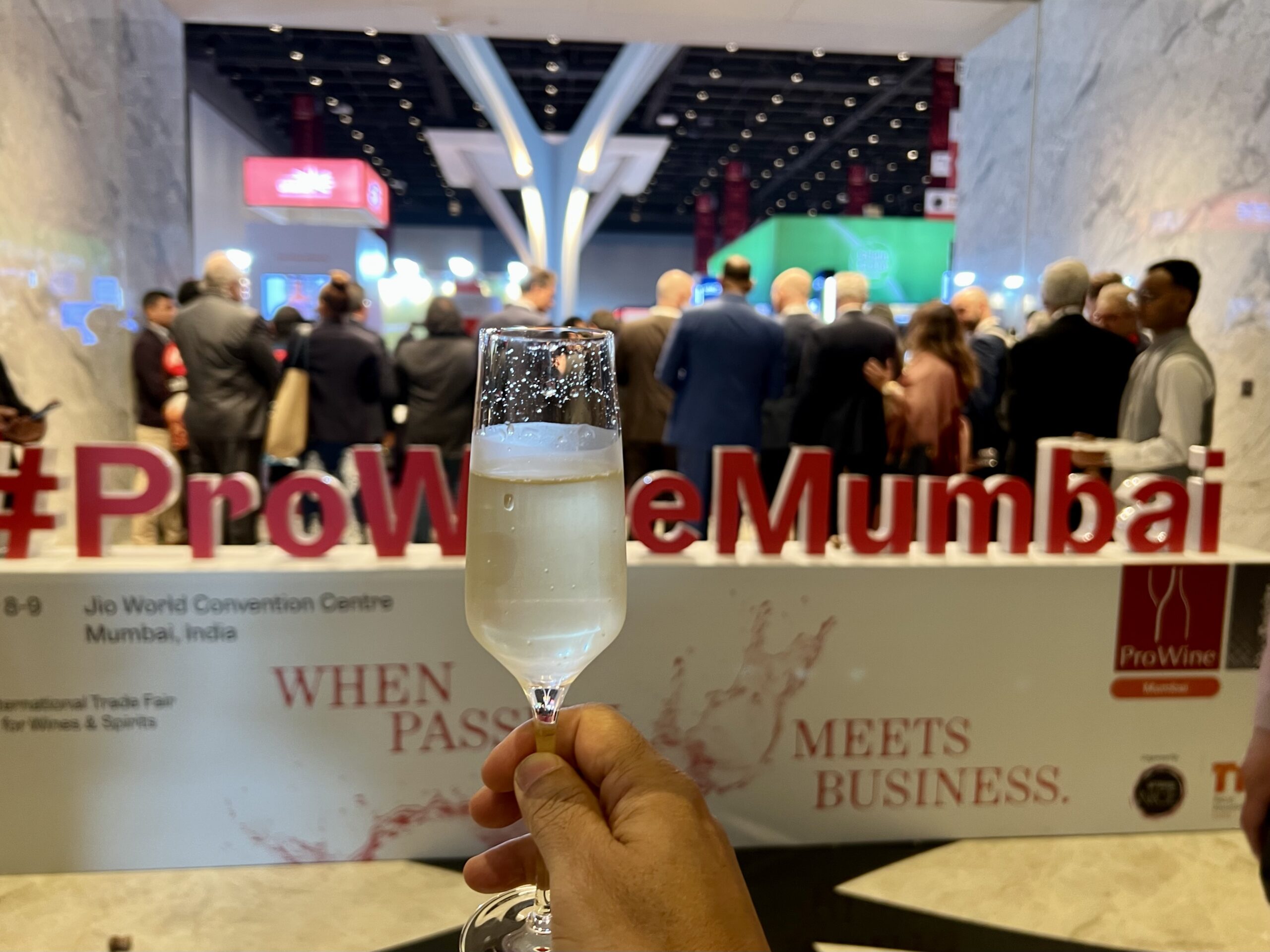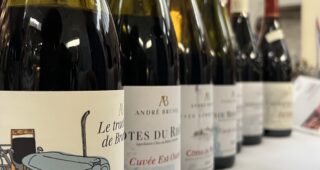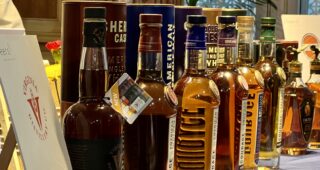Workarounds come naturally to us humans, much like a stream of water that diverts its flow on encountering an obstacle. The ongoing Covid-19 pandemic has necessitated many a workaround, and the wine industry has been no exception to the phenomenon. Virtual wine tastings are inarguably one such workaround that we have been witnessing of late.
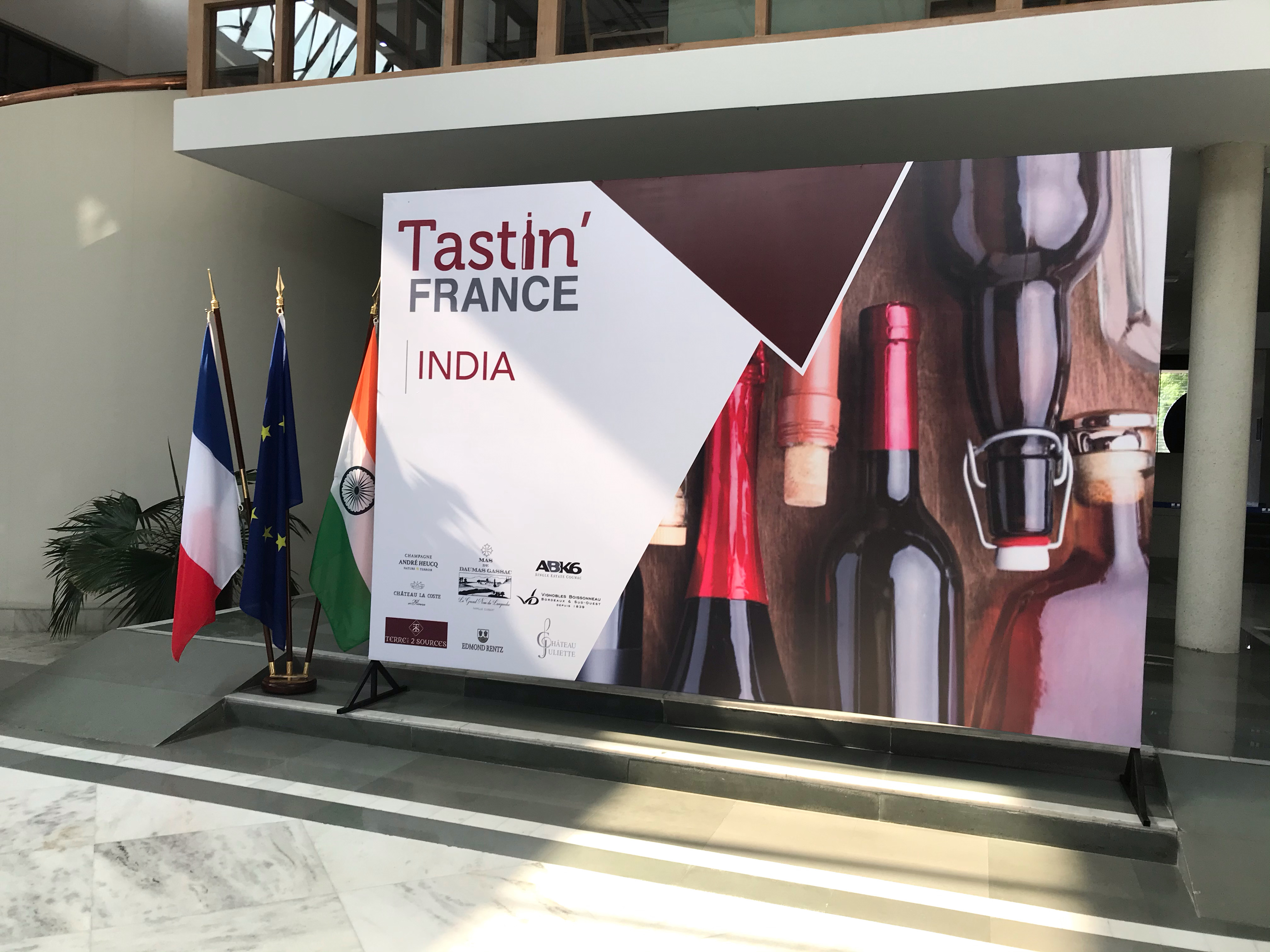
With social restrictions having somewhat eased, a step further has been hybrid wine tastings that are part physical-part virtual. These tastings conducted physically with a restricted attendance, enable several other people to be connected to the proceedings virtually through the internet. A tasting that I attended recently was organized by Business France at the Embassy of France in New Delhi.
The tasting showcased a good range of wines from different French regions (Alsace, Bordeaux, Champagne, Rhône Valley, and Languedoc-Rousillon ) amid virtual connectivity with the respective winemakers whose wines were being showcased. Even though the current economic scenario may not be encouraging, the showcasing wines hope to create a space for themselves on Indian shelves once the business returns back to normal.
Here’s a brief round-up of the wines and Eaux-de-vie that I tasted during the engagement. Since it was a “speed tasting” with a 1-hour time slot allocated to each group, the tasting notes are short and sweet.
Alsace
Edmond Rentz
This 1785 founded estate by Thomas Rentz was expanded in 1920 by Edmond Rentz who was among the first to start using modern bottling techniques in 1930. Edmond also decided to tailor the quality of his wines and place his name on each bottle, thereby creating the Edmond Rentz brand.
Edmond Rentz has been managed by successive family generations who have contributed in their own ways to the Maison. Two wines each from their early drinking Tradition and storage worthy Terroir ranges were showcased at the event.

Tradition Range
Edmond Rentz Pinot Blanc 2019, AOC Alsace
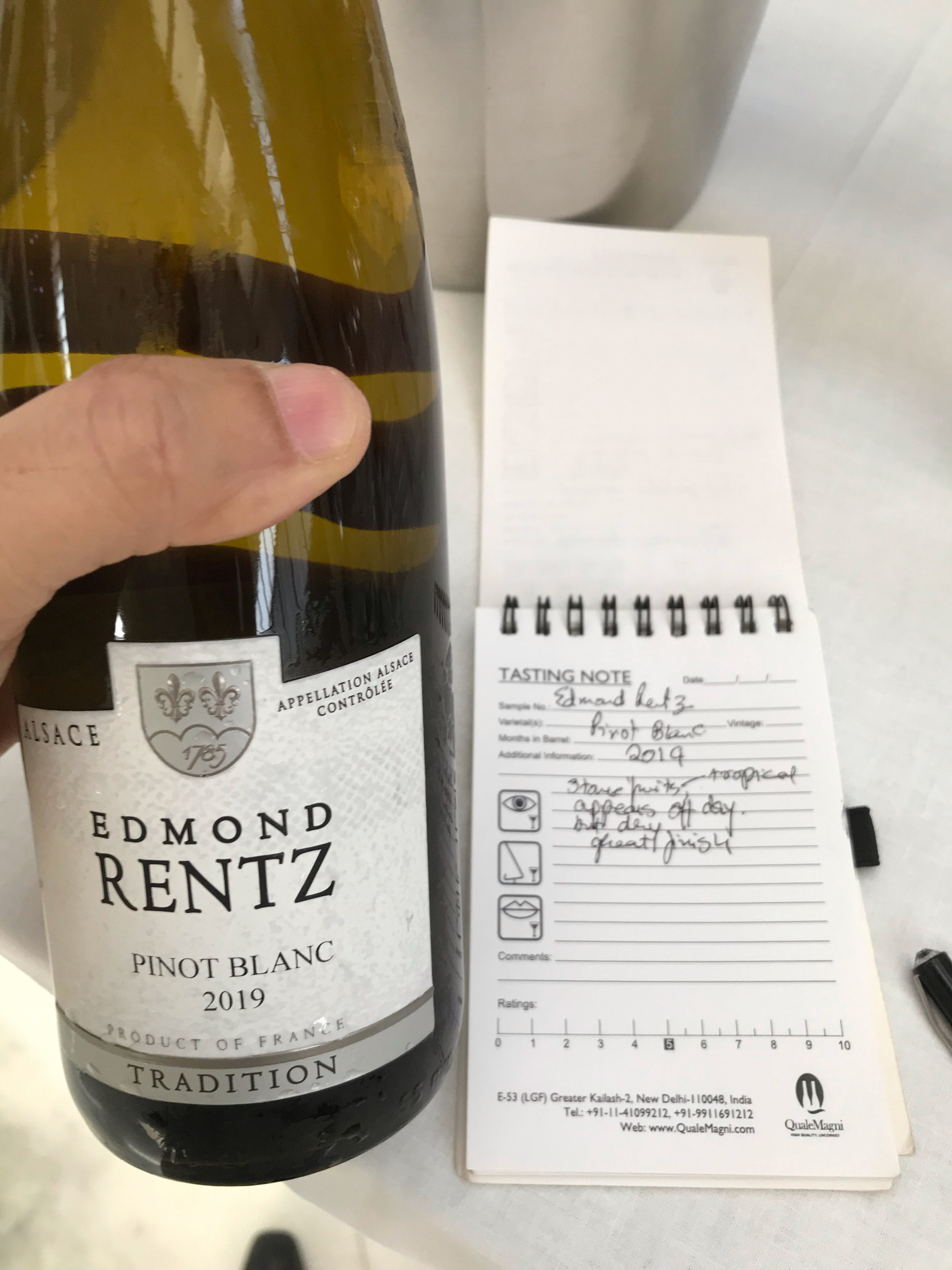
The wine had aromas of tropical fruits followed by an intensely fruity palate that made the otherwise dry wine appear a little off-dry. The wine had a lengthy finish.
Edmond Rentz Pinot Gris 2019, AOC Alsace
Edmond Rentz Pinot Gris 2019 had delicate floral aromas and a luscious well rounded off-dry palate. With well-balanced acidity, this wine can be good on its own or with light food.
Terroir Range
Edmond Rentz Riesling Les Comtes 2018, AOC Alsace
Light golden coloured wine with fruit-forward aromas. It didn’t have the typical “petrol” aromas often associated with Riesling varietal wines. The palate was highly complex with buoyant acidity, good enough to go with a range of grilled and pan-fried preparations.
Edmond Rentz Pinot Noir Pièce de Chêne 2017, AOC Alsace
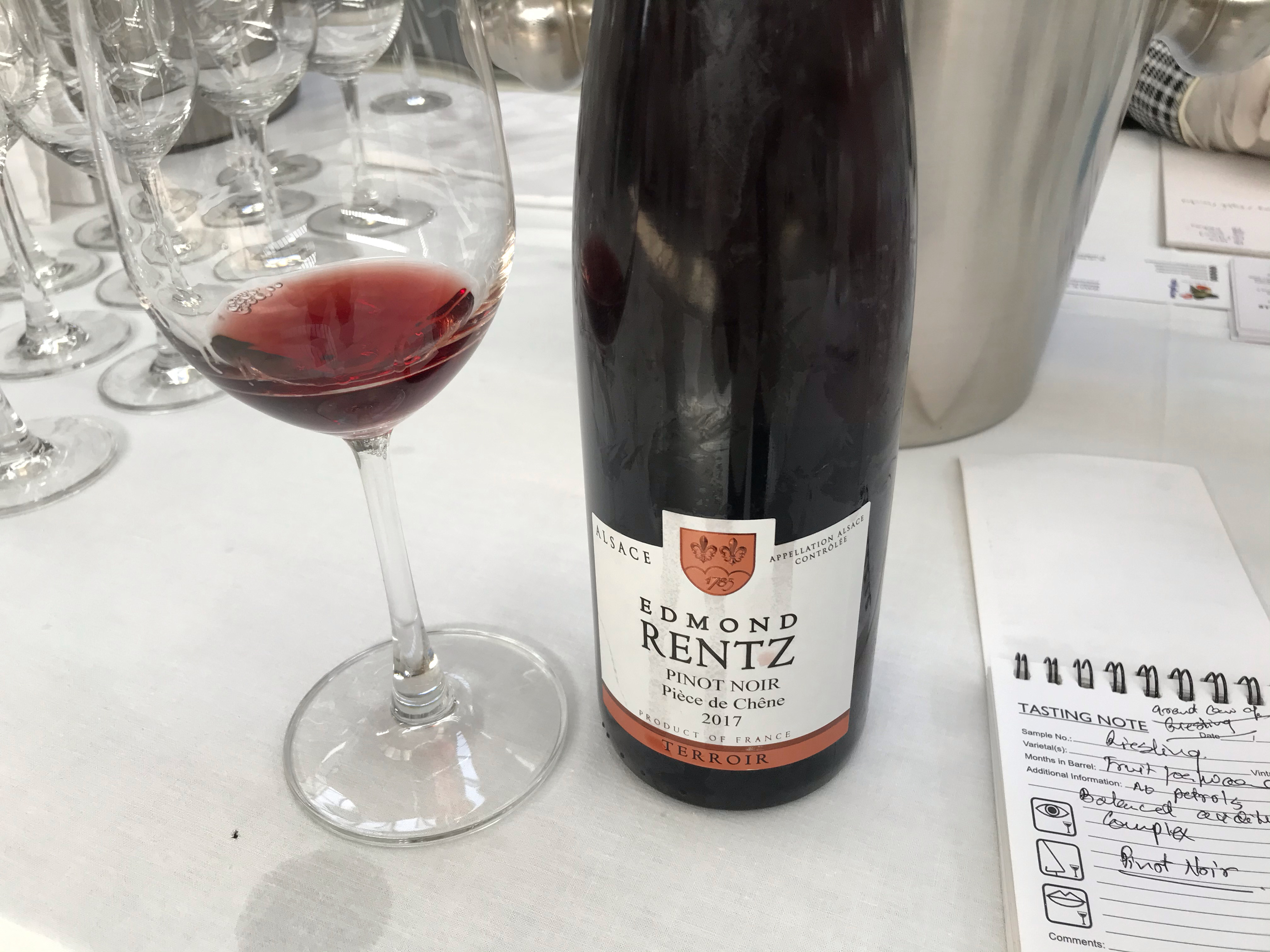
Pièce de Chêne translates as “Piece of Oak”. The ruby-red wine with a garnet rim was juicy on the palate with abundant red berries. With rounded tannins, it had a good structure apt to be classified as “soft yet powerful”. I could imagine some juicy kebabs not too high on the spice with this wine.
Bordeaux
Vignobles Boissonneau
Vignobles Boissonneau was established in 1839 by Pierre Boissonneau who bought this estate situated, on the Entre-Deux-Mers plateau in the Bordeaux appellation. Priding themselves on their more than 180 years of heritage, they started converting to organic viticulture in 2010.

This is the second time that I tasted their wines, the earlier occasion being a similar event during the last year. Anvay Sawant, an Indian based in Bordeaux who is their Cellar Master represented them at the tasting.
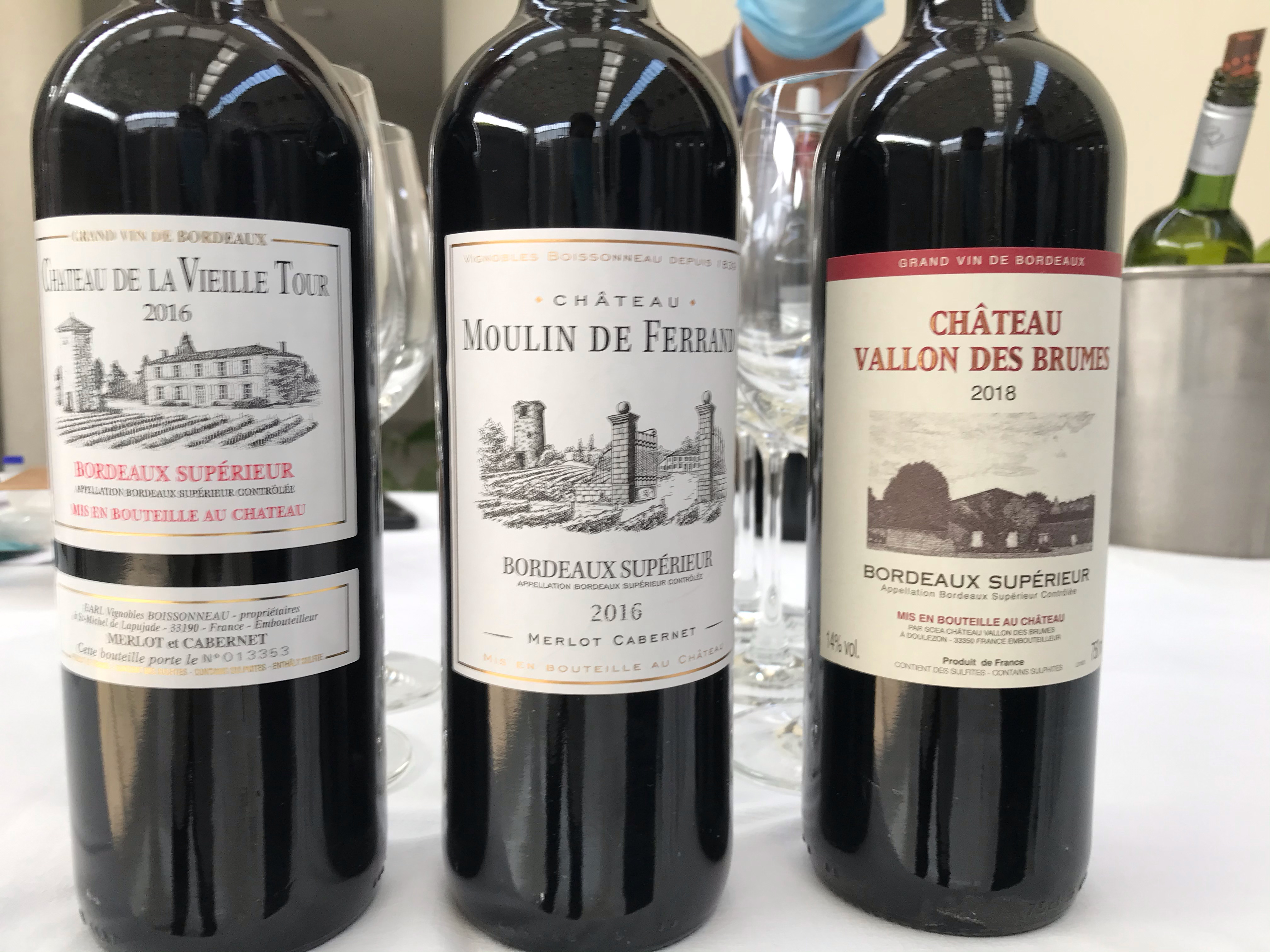
Château de La Vieille Tour 2016, AOC Bordeaux Supérieur
A fruity, full-bodied wine with black fruits and vanilla notes. Integrated soft tannins and a decent finish make it an easy-drinking characterful wine.
Château Moulin de Ferrand 2016, AOC Bordeaux Supérieur
A voluptuous wine with ripe blackberry and black currant flavours. It was a little jammy on the palate but not overly so.
Château Vallon des Brumes 2018, AOC Bordeaux Supérieur
A bright deep ruby wine with black fruits, earthy and smoky notes. Well structured on the palate with a good finish.
Champagne
André Heucq
Champagne André Heucq is located in Cuisles- a little village of 150 inhabitants located in the heart of Vallée de la Marne, well-acclaimed as a terroir suited particularly to the Pinot Meunier grape. The house was established in 1936 by André Heucq, a first-generation artisanal vigneron. Currently, the fourth generation is managing the house with the continuing support of the third generation.
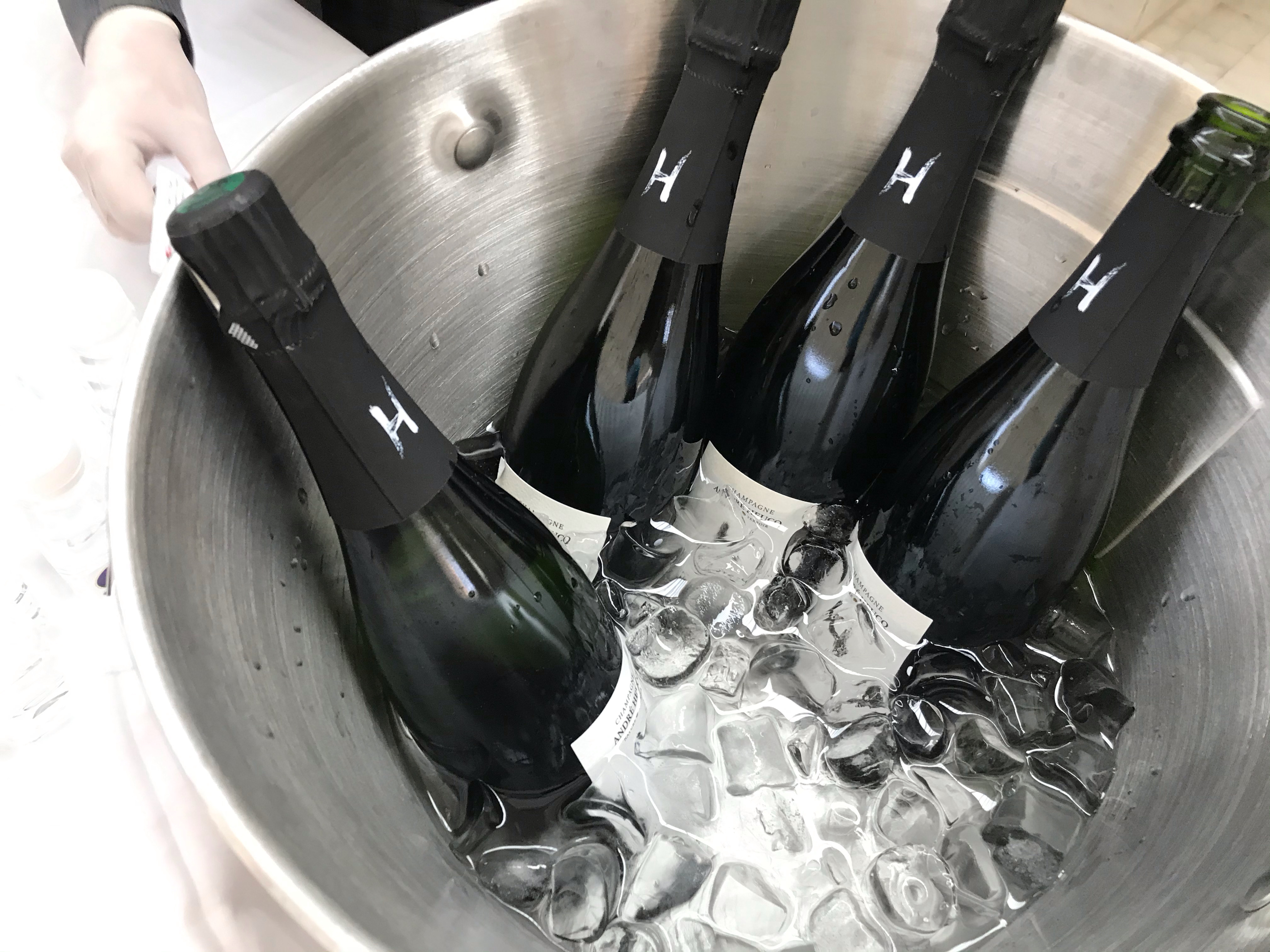
Two of their Champagnes were to be put up for tasting but only one was available due to some logistical issues in the initial time slot. The one I missed out was the Héritage Blanc de Meunier, a white sparkling made from 100% Pinot Meunier grape.
André Heucq Héritage Assemblage Extra Brut N.V.
(40% Chardonnay, 30% Pinot Meunier, 30% Pinot Noir)
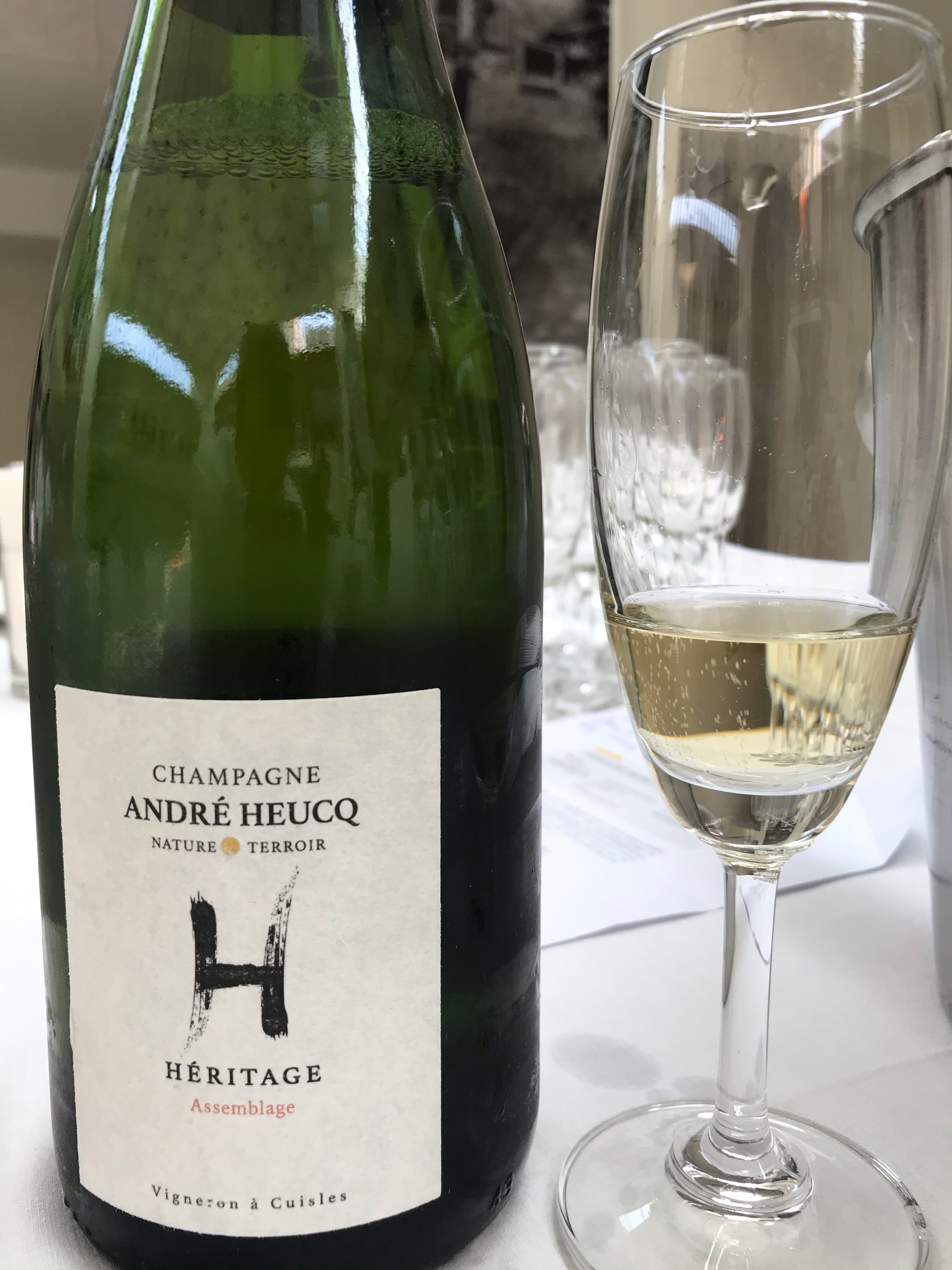
A light golden bubbly that poured with a luxuriant mousse and persistent fine bubbles. It had an appetising bouquet of apricots, figs, and toasted almonds. The palate was mouth-filling with well-balanced acidity and a lengthy finish. I found it quite inspiring and wished I had more time to relish it.
Languedoc-Roussillon
Terre des 2 Sources
Terre des 2 Sources is located at the southern tip of the Cévennes – a cultural region and range of mountains in South-Central France, around 45 minutes from Montpellier. In their 35 hectares of vineyards, they grow fifteen different grape varietals that include Grenache, Syrah, Cinsault, Viognier, Marsanne, Roussane, as also some uncommon to the region like Chenin Blanc, Sauvignon Blanc, Ugni Blanc, Cabernet Sauvignon and Merlot. Interestingly they also cultivate some esoteric red varietals like Aubun and Aramon that used to be grown in the region many years back.
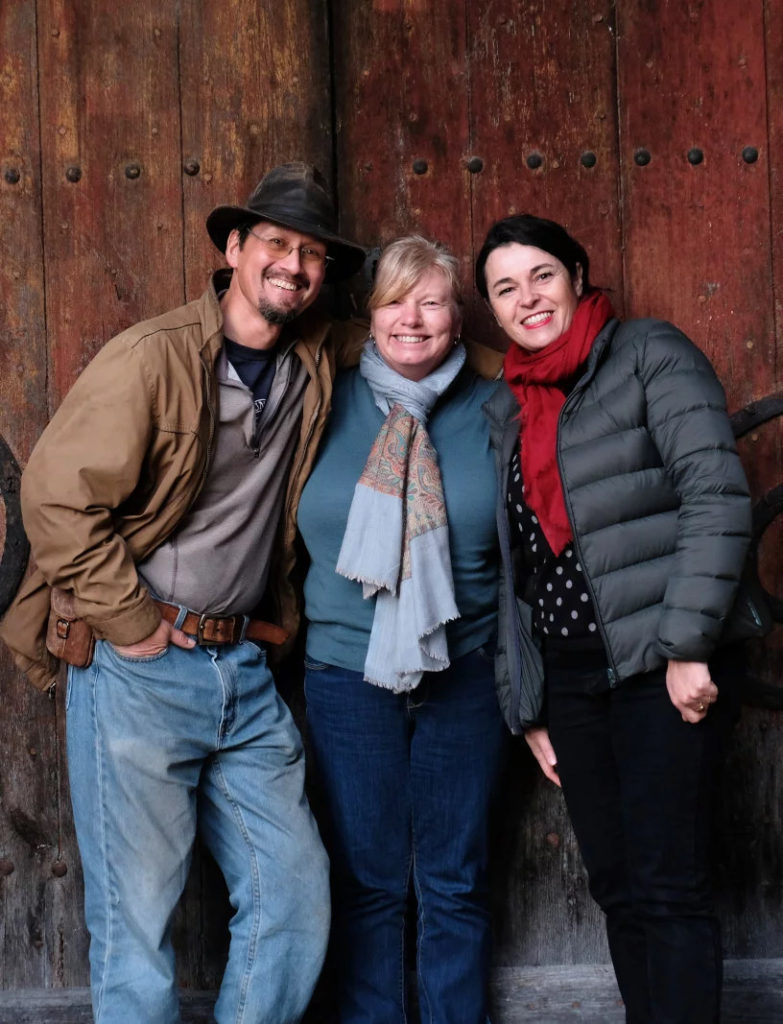
Terre des 2 Sources proclaim their winemaking philosophy as combining the best of Old and New worlds and attribute it to their multinational background of Dr Glen Creasy (USA), Kirsten Creasy (New Zealand) and Hélène Taillefer (France).
Two of their easy-drinking Amourettes label wines were on offer for the tasting.
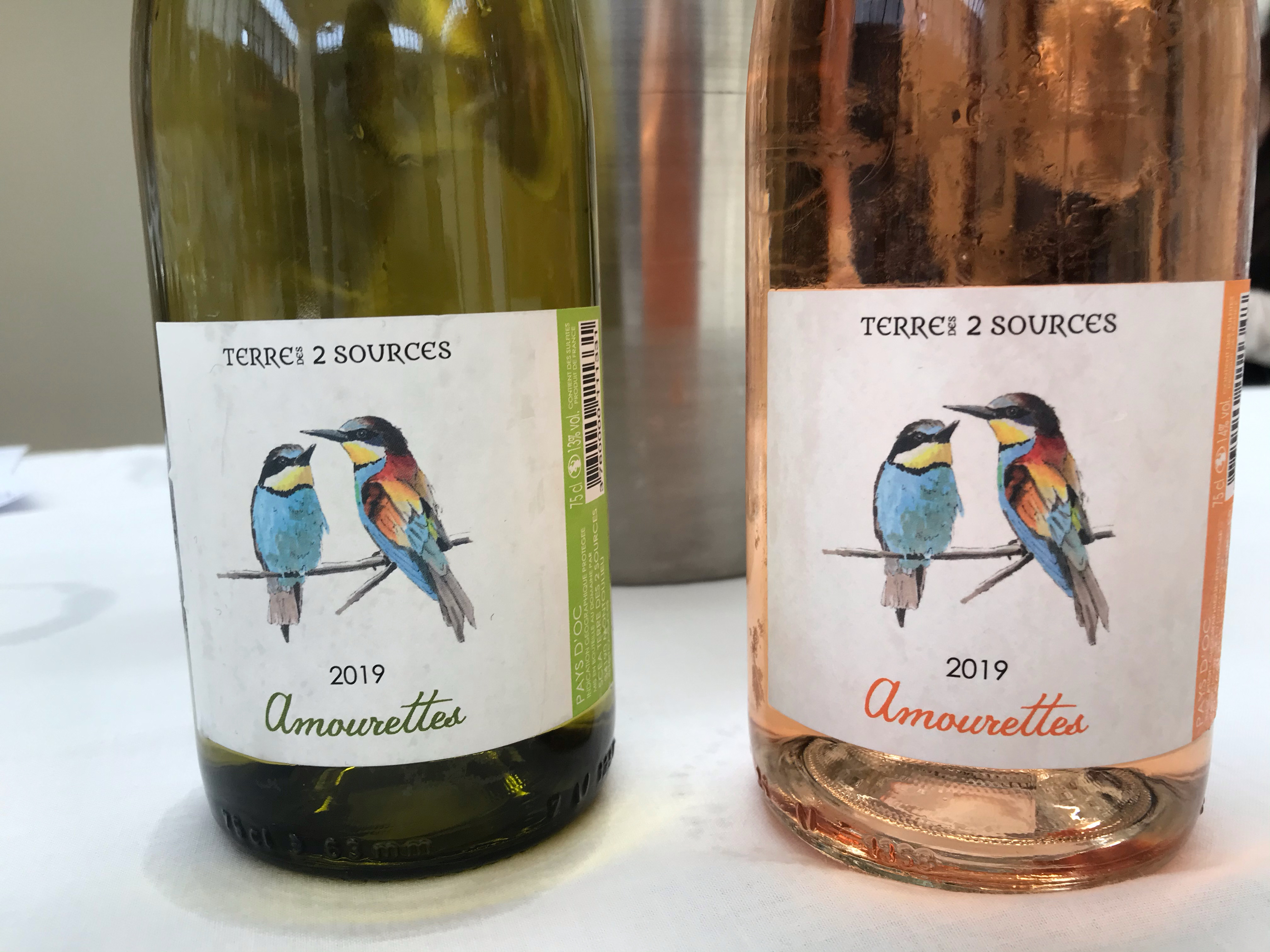
Amourettes White 2019, IGP Pays d’Oc
Floral and citrus aromas followed by a crisp dry palate and a refreshing finish.
Amourettes Rosé 2019, IGP Pays d’Oc
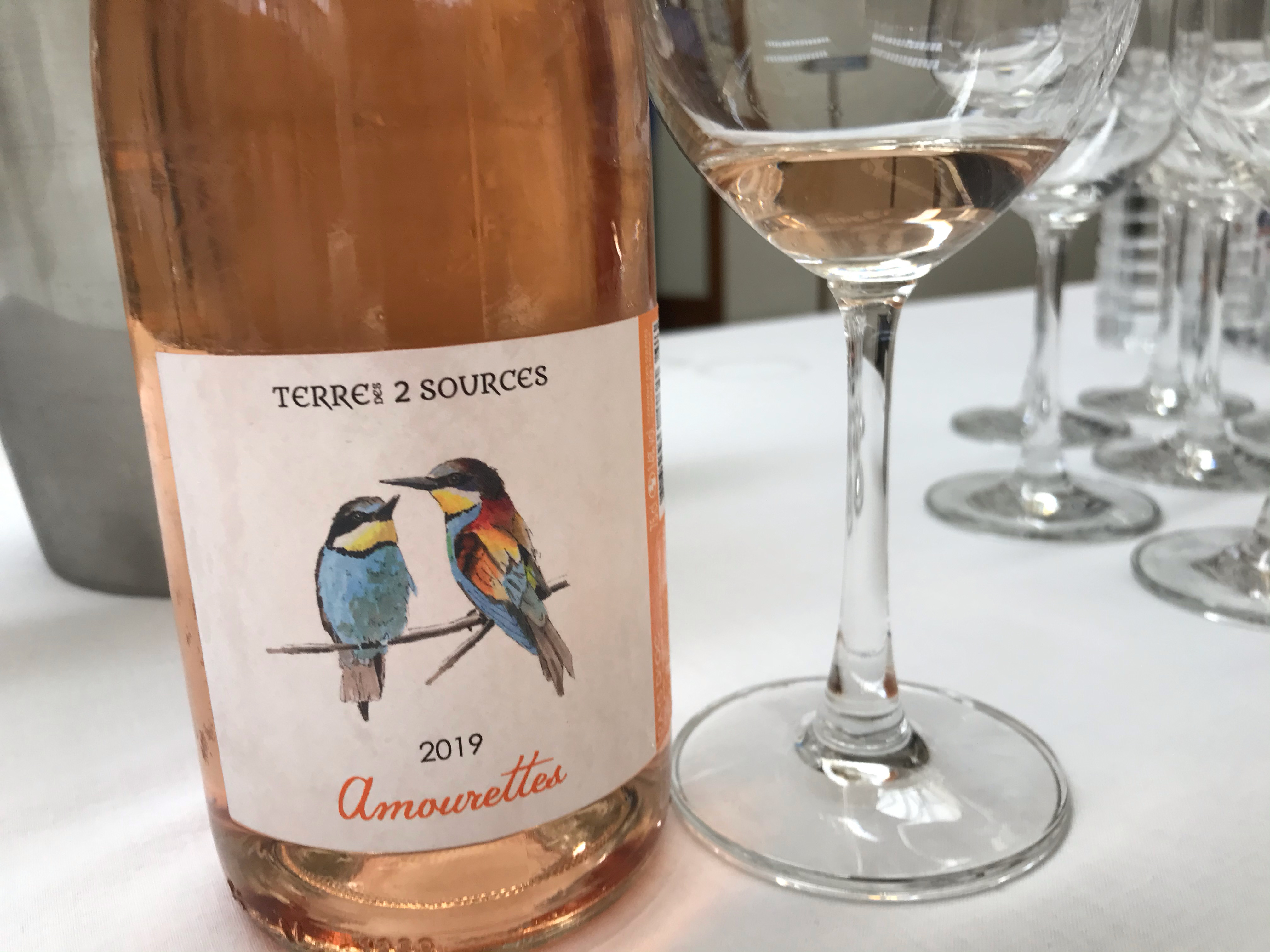
A peach-pink coloured wine with citrus, peach, and melon aromas. On the palate, it was crisp and medium-bodied with flavours of red berries.
Mas de Daumas Gassac
In 1970, Véronique, an ethnologist, and Aimé Guibert, a glover and tanner from Millau toured the countryside in the Hérault (a department in Montpellier prefecture) looking for a family house. They were taken in by the sight of an old Mas (farmhouse) and an abandoned mill, located in the proximity of the Gassac river.
Consulting top experts from the region, they identified the terroir of the place as capable of producing some outstanding wines that could rival even the best from Bordeaux. The foundation of Mas de Daumas Gassac and subsequently Moulin de Gassac was laid. Thereafter they were able to rope in noted Oenologist Emile Peynaud as an advisor before their first vintage debuted in 1978. Within a short span of time, wines from the Gassac estates have created a name for themselves like few others.
In May 2016, after the passing of Aimé his four children Samuel, Basile, Roman and Gaël have taken over the operations of the estates, thereby increasingly focusing on elegance and freshness of the wines rather than having more tannic characteristics. I was able to interact virtually with them at the tasting.
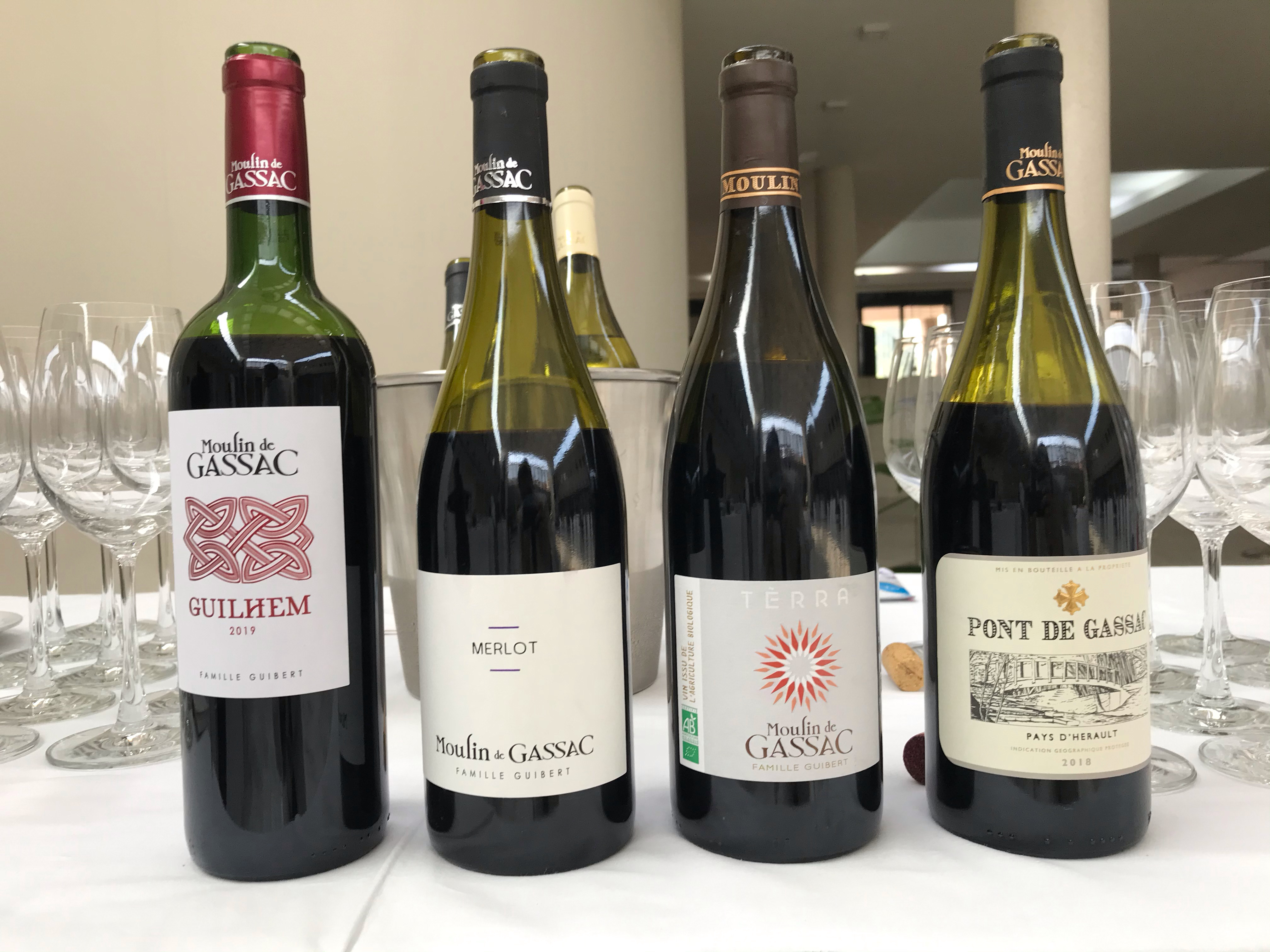
Moulin de Gassac Guilhem 2019, IGP Pays d’Hérault
A typical Mediterranean blend of 40% Syrah, 30% Grenache, 30 % Carignan, this wine had a black fruits and spice character with soft tannins. An easy going red.
Moulin de Gassac Merlot 2019, IGP Pays d’Oc
A lusciously fruity wine with rounded tannins. An early drinking wine that you can enjoy on its own or with food.
Moulin de Gassac Tèrra 2018, AOP Languedoc
Made from grapes sourced from selected parcels, this is their organically produced “terroir” wine with the blend comprising 50 % Syrah, 40% Grenache, and 10% Carignan.
The wine had aromas of black cherries and strawberry jam complemented by smooth tannins that can be visualised as “silken” in the coming years. The storage potential of this wine according to the winemaker is 4-6 years.
Pont de Gassac 2018, IGP Pays d’Hérault
An expressive wine with red berry aromas and a mouth filling palate followed by a sound finish. The blend comprises of 30% Syrah, 30% Cabernet Sauvignon, 30% Merlot & 10% Carignan.
Cognac
Domaines Francis Abécassis
ABK6 may be an unusual name for a Cognac but giving a closer look, I found that it has a phonetic similarity to their family name pronounced Aa-bey-cassis. Checking out their website sure validated my presumption.

Domaines Francis Abécassis has 370 hectares of vines spread all over the Cognac appellation that makes them one of the largest independent producers of the region. They are renowned for their Single Estate Cognacs as well as Cognac based liqueurs and biodynamically produced Gins and Vodkas. The Domaine is managed by Francis and his daughter Elodie who work passionately to adapt the production of their Cognacs to their specific terroirs.
ABK6 Reserve Artist Collection Cognac
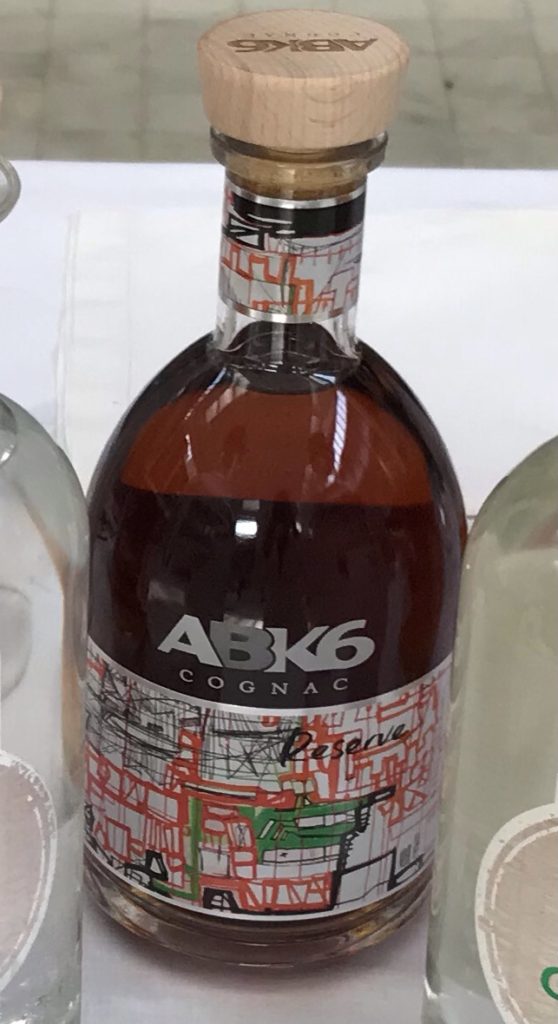
This is a limited edition Cognac with an artistic label that was pleasantly reminiscent of Indian colours to me. My observation was agreed-to by Mathilde Bertille of Business France who was manning the ABK6 counter. The Cognac has distinctly numbered bottles from 1-10000. It was therefore nothing short of a privilege to taste them.
Tasting notes: Clear deep amber with aromas of cooked apple, cinnamon and vanilla. Smooth and round on the palate with a fruity-spicy character and a lingering finish.
ABK6 ICE Cognac
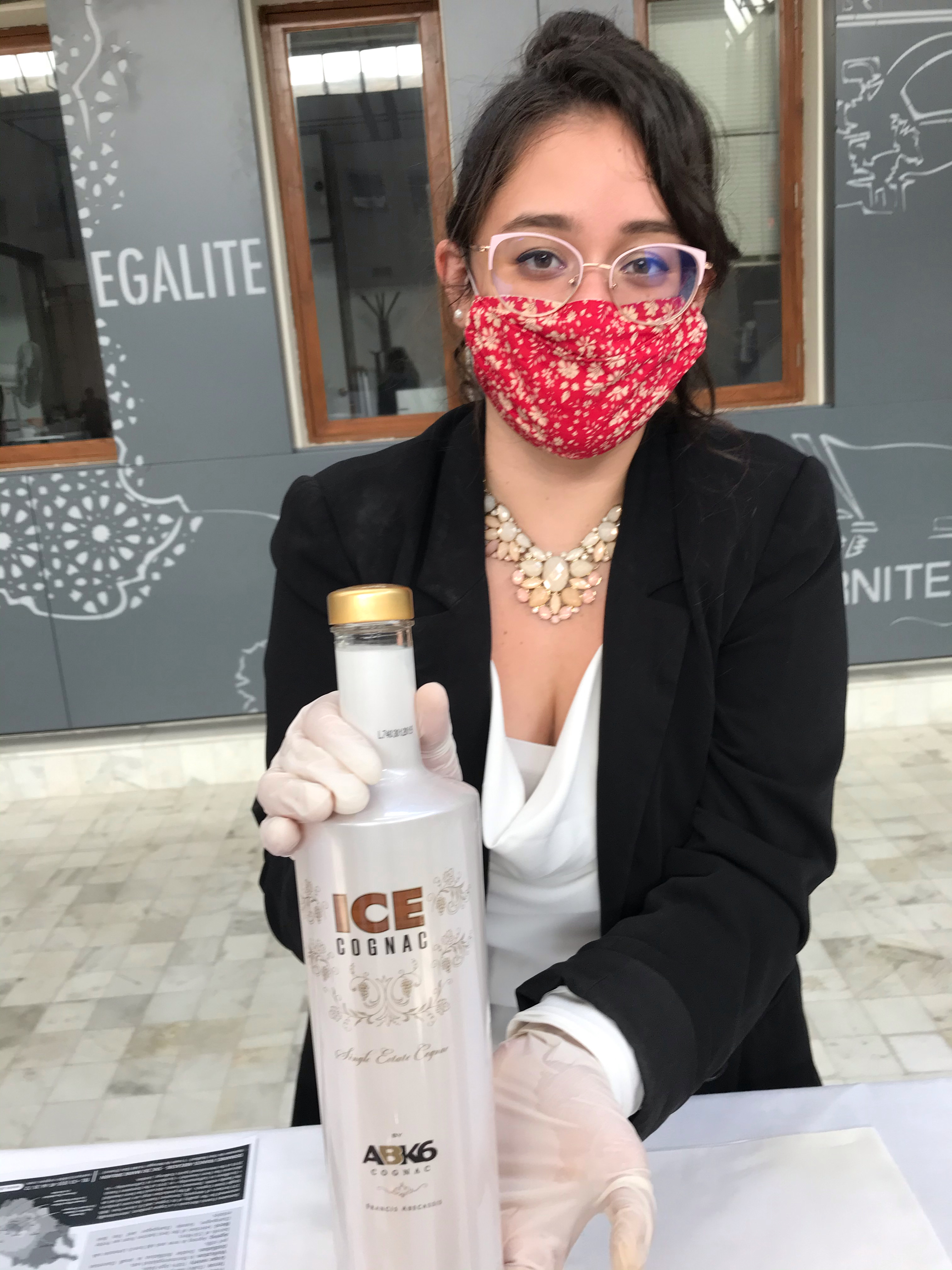
Packaged in a trendy bottle, Ice in my understanding is targeted at the cocktail-loving audience. Soft on the palate without compromising on the essential Cognac complexity, this one can be an ideal ingredient for your Side Cars, Sazerac and many other Cognac-based cocktails.
ABK6 Honey Cognac Liqueur & ABK6 Orange-Cinnamon Cognac Liqueur
Both these liqueurs displayed an artisanal character, each having its unique imprint with the distinctive aromatics and flavours of their constituents. They would make for a great digestif or giving a twist to your Brandy Alexander.
A Praiseworthy Effort
This was the first wine tasting that I attended after the Covid pandemic surfaced in India in March 2020. In fact I do not recall any tasting of such magnitude happening in the intervening period.
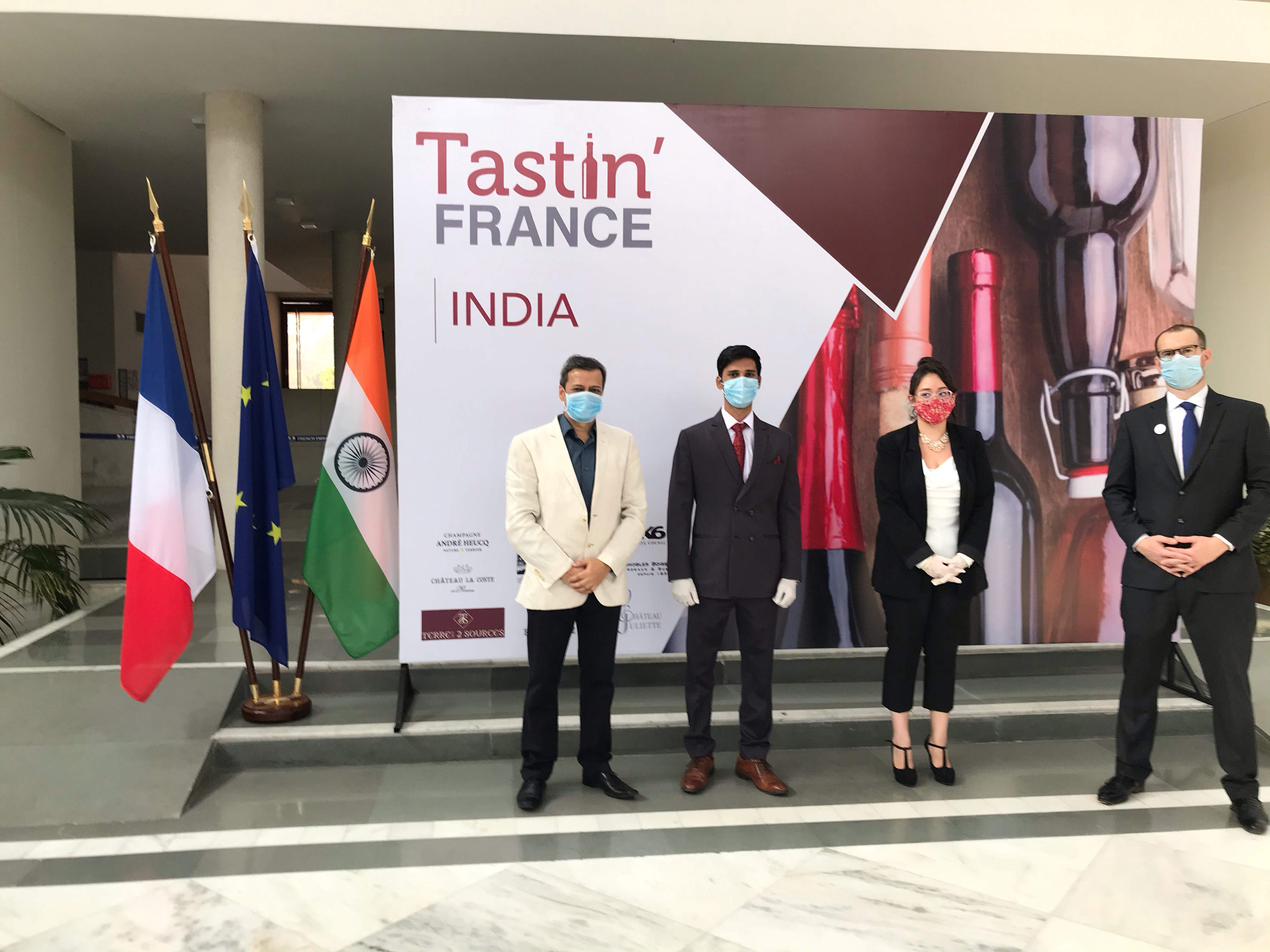
It goes to the credit of the organizers to have put in place meticulous arrangements for everybody’s safety and allaying fears if any by personally briefing attendees. Hence we saw the implementation of hourly time slots to avoid any crowding, sanitising arrangements, compulsory use of masks, and of course- temperature checking and recording at the entry point.
The pandemic may not go away in the immediate future but it is certain that the indomitable human spirit will continue to flourish forever.




